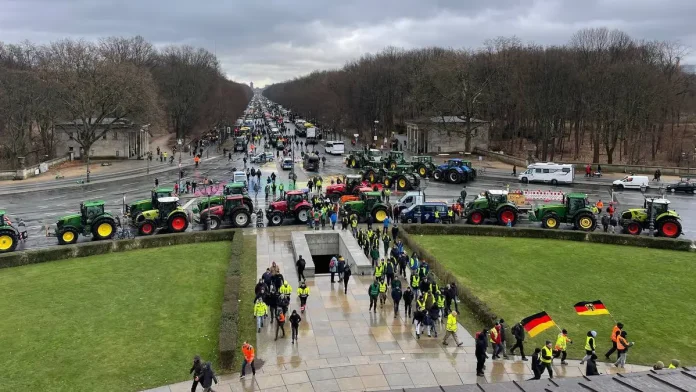Thousands of German farmers, truck drivers, and agricultural workers converged at Berlin’s iconic Brandenburg Gate with tractors and heavy equipment in a demonstration against the government’s decision to end tax breaks on diesel. The protest, a climax to a week of farmer demonstrations, brought at least 3,000 tractors to the city, causing traffic disruptions and major delays in public transit.
While approximately 10,000 people had registered for the protests against Chancellor Olaf Scholz’s subsidy cuts, Berlin police anticipated even more attendees. To manage the situation, 1,300 police officers were deployed to accompany the farmer protests.
Finance Minister Christian Lindner is expected to address the demonstrators, along with representatives from farmers’ associations and trade unions. The protest comes after a court ruling left a significant budget gap, leading the government to announce plans to cut subsidies and tax breaks on diesel and agricultural vehicles.
Despite partial concessions by the government, such as retaining tax exemption for farming vehicles and staggered cuts in diesel tax breaks over three years, farmers argue that the compromises are insufficient. Farmers have disrupted highways and traffic across Germany over the past week, expressing dissatisfaction with the government’s actions.
Chancellor Scholz defended the reductions, pointing to the record profits of farms in the financial year 2022-23, which saw a 45 percent increase to 115,400 euros ($126,000) on average. However, farmers, backed by the opposition conservatives and far-right parties, insist that the concessions do not go far enough.
As tensions escalate, farmers warn of dire consequences, with one stating, “Farmers will die out,” emphasizing the need for the population to understand that food imports will increase if subsidies are not restored. Despite Scholz’s assurance of a “good compromise,” the standoff continues between the government and disgruntled farmers.



